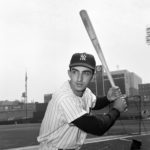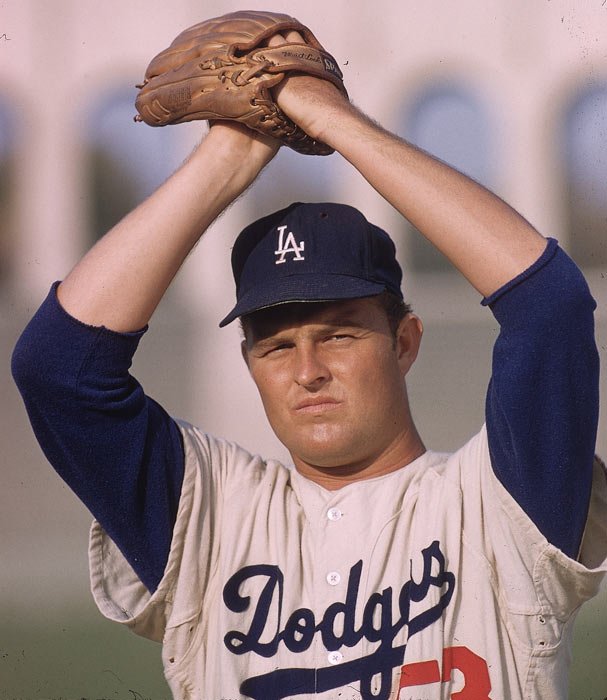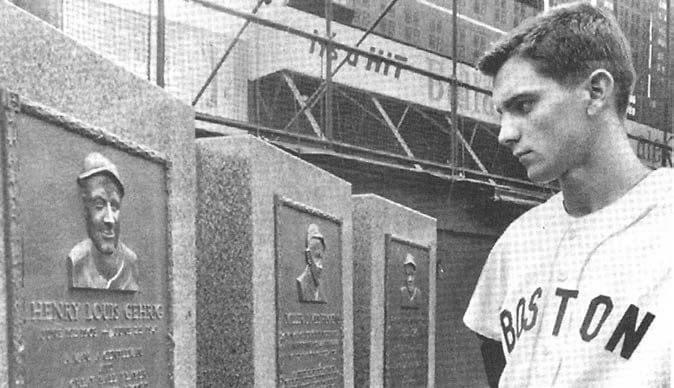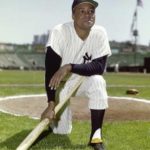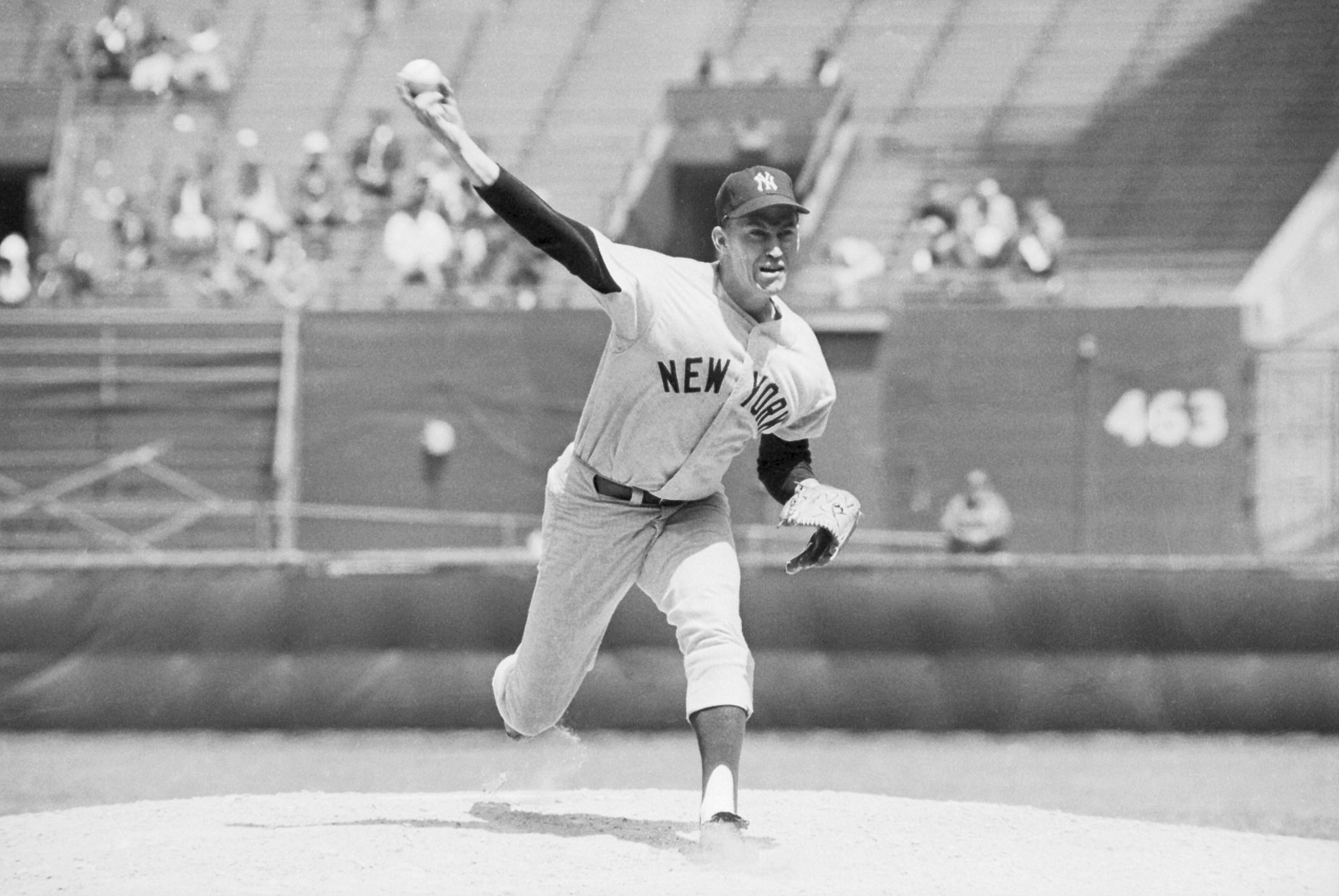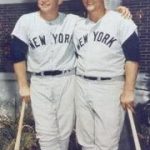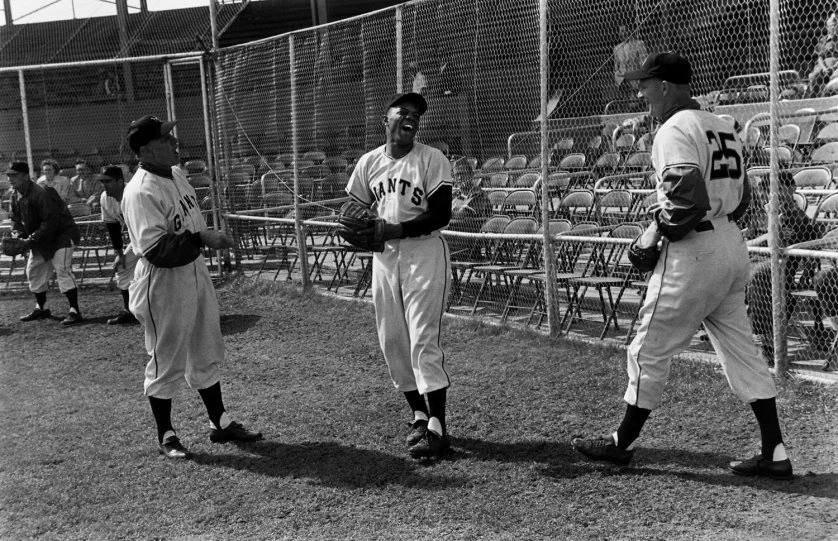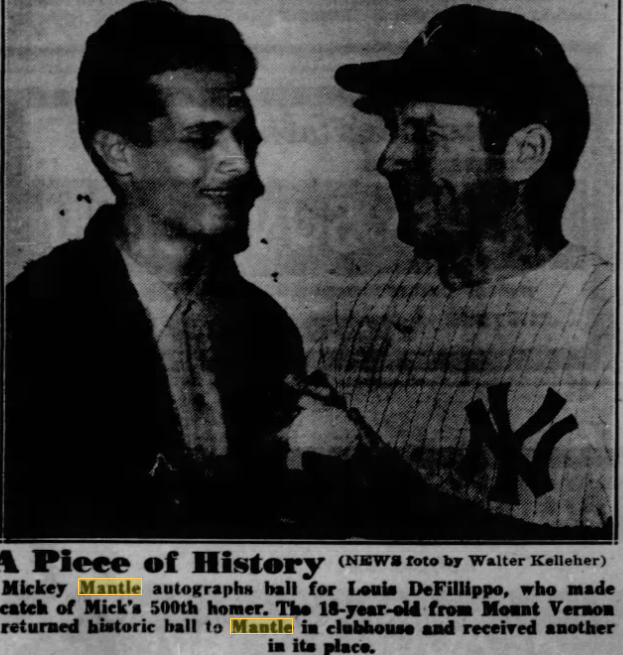Joe Pepitone Biography
Joe Pepitone
Positions: First Baseman and CenterfielderBats: Left • Throws: Left
6-2, 185lb (188cm, 83kg)
Born: October 9, 1940 in Brooklyn, NY
High School: Jay HS (Brooklyn, NY)
Debut: April 10, 1962 (9,535th in MLB history)
vs. BAL 1 AB, 0 H, 0 HR, 0 RBI, 0 SB
Last Game: May 25, 1973
vs. STL 3 AB, 0 H, 0 HR, 0 RBI, 0 SB
Full Name: Joseph Anthony Pepitone
Nicknames: Pepi
View Player Bio from the SABR BioProject
Nine Players Who Debuted in 1962
Willie Stargell
Bob Bailey
Ed Kranepool
Cookie Rojas
Tony Oliva
Gaylord Perry
Bob Veale
Dick Radatz
Tommy Harper
All-Time Teammate Team
Coming Soon
Notable Events and Chronology for Joe Pepitone Career
Joe Pepitone Biography
One of the more colorful and charismatic players of his era, Joe Pepitone possessed a great deal of physical talent that should have made him a star. However, no one in the rich history of the New York Yankees ever wasted his God-given natural ability more than the enigmatic Pepitone, who lacked the focus and commitment necessary to live up to his full potential.
Born on October 9, 1940 in Brooklyn, New York, Joseph Anthony Pepitone had warnings signs surrounding him even before the Yankees signed him as an amateur free agent in 1958. While a student at Manual Trades High School in Brooklyn one year earlier, Pepitone was shot in the stomach during a schoolyard dispute. When he signed with the Yankees, one club official privately believed Pepitone might well wind up either being stabbed in an alley or committed to a mental institution.
Nevertheless, New York decided to take a chance on Pepitone since he had so much raw talent. Standing 6’2″ and weighing close to 200 pounds, the first baseman/outfielder had soft hands, good speed, a strong arm, and an extremely quick and powerful lefthanded bat that the members of the team’s front office believed was perfectly suited for Yankee Stadium’s short right-field porch. After signing with the Yankees, Pepitone immediately displayed his fun-loving and carefree attitude by spending his entire $20,000 signing bonus on a fancy car and a motorboat.
Pepitone spent four years working his way up through the Yankee farm system before finally joining the team in 1962. Serving primarily as Moose Skowron’s back-up at first base and as a reserve outfielder, Pepitone hit seven home runs and batted just .239 in 138 official at-bats. Yet the members of New York’s front office liked his short, compact swing, and they also were impressed with the way he carried himself in the field. Although Pepitone also did a creditable job in the outfield, first base came more naturally to him, and it seemed to be only a matter of time before he claimed the starting job at the position from Skowron, who had been with the team since 1954. Displaying tremendous self-confidence, Pepitone frequently warned the veteran first sacker that he fully intended to take his job. Pepitone’s prediction came to fruition in November of 1962, when the Yankees traded Skowron to the Dodgers. Upon learning of the deal, Pepitone sent Skowron a cable saying: “Dear Moose: Told you so. Joe Pep.”
It initially seemed that the Yankee front office made the correct decision. In his first full season, Pepitone hit 27 home runs, knocked in 89 runs, batted .271, and was selected to both the American League and The Sporting News All-Star teams. Although his batting average dropped to .251 in 1964, his 28 home runs and 100 runs batted in both placed him near the top of the league rankings and earned him his second All-Star game selection.
The 1963 and 1964 campaigns were enjoyable ones for Pepitone. He performed well and the Yankees won the pennant both years. Furthermore, Pepitone had the opportunity to play alongside his idol, Mickey Mantle. Pepitone adored the veteran centerfielder to such an extent that he derived great pleasure from hearing his hero refer to him as “Pepinose,” in honor of his prominent proboscis. The first baseman was absolutely thrilled when Mantle told a sportswriter prior to the start of the 1963 season that he expected Pepitone to be the key to the Yankees’ success that year. Mantle suggested to the writer, “I figure we’ll win by a nose.”
One of the more flamboyant players of his time, Pepitone enjoyed drawing attention to himself by wearing his hair long and his uniform and street clothes form-fitting. The first Yankee player to bring a hair dryer into the clubhouse, Pepitone carried with him two toupees to conceal his rapidly-developing baldness. He explained that one was for general use, while the other, which he referred to as his “game piece,” was to wear under his cap during games.
None of Pepitone’s quirks seemed to bother Yankee management much until his on-field performance began to slip in 1965. Although he was selected to the A.L. All-Star Team for the third and final time in his career, he hit only 18 home runs, drove in just 62 runs, and batted only .247. He rebounded, though, in 1966 to hit 31 home runs, knock in 83 runs, bat .255, and win his second consecutive Gold Glove Award at first base.
With Mickey Mantle clearly in the twilight of his career, Pepitone expressed a desire to become more of a team leader heading into the 1967 campaign by taking the game more seriously. He told reporters in spring training, “I still make jokes in the clubhouse and kid around with the fans, but I’m a more serious ballplayer now. I know I’m of more value to the club. I’m in a position to make more money, and if I come up with a good year, I can own New York.” He added, “I discovered the city, the Copa, and all that. I found I could hit .996 on the street. It probably took 60 points off my average.”
Pepitone even agreed to move to centerfield in order to allow Mantle and his aching legs to shift to first base. Unfortunately, though, Pepitone’s newfound attitude didn’t last very long, and his offensive production suffered in each of the next two seasons, due in part to injuries and in part to off the field distractions. Pepitone had a solid season after he returned to first base in 1969 following Mantle’s retirement, leading the team with 27 home runs. But outside affairs and “personal problems” began to overwhelm him. After leaving the team twice, being suspended once, and being fined another time, Pepitone was finally traded at the end of the season to the Houston Astros.
Pepitone’s stay in Houston was quite brief as his carefree personality clashed with that of conservative manager Harry Walker. Midway through the season, the Astros dealt the disgruntled first baseman to the Chicago Cubs, for whom he had one of his best seasons in 1971. Although he hit only 16 home runs and knocked in just 61 runs in 427 at-bats, Pepitone batted .307, topping the .300-mark for the only time in his career.
After two more years in Chicago, Pepitone decided to move to Japan, where he played ball for three more years. However, the regimented Japanese had a difficult time understanding the free-spirited Pepitone, who was unhappy away from home. He ended up jumping the Yakult Sparrows, while batting just .163, and becoming a one-man international incident.
Back in the United States during the 1980s, Pepitone associated with the wrong people, leading to his arrest on gun and drug charges. He served a small amount of time in prison before being released on a work-release program and eventually being given a job by George Steinbrenner in the Yankee front office.
Although Joe Pepitone had a solid major-league career, his natural gifts should have enabled him to accomplish so much more. The quick, compact swing that emanated from his 6’2″, 200-pound frame was the source of great power. It also allowed him to make good contact with the ball, since he never struck out more than 63 times in any single season.
Roy White, who played five seasons with Pepitone in New York, recalled the power his former teammate generated with his swing: “I really tried to pattern my swing after Joe Pepitone’s because I was so impressed with the bat speed he had – a very short, compact stroke. I remember the first Yankee spring camp that I went to in Fort Lauderdale. There was a strong wind that blew in from right, across to left, so, in order to hit the ball out through a 25 or 30 mile per hour wind, you really had to hit it. The first day, Maris got up and hit one ball out. Mantle got up and hit three. Then, Joe Pepitone got up and hit about seven in a row right through the wind…just screaming line drives that were hit so low and hard that the wind didn’t even affect them. That left a lasting impression on me. Also, he held his hands kind of low, so that’s where I got that from – from watching Joe. I thought he had the quickest bat that I had seen in major league baseball…and, to this day, I still say that. He had the most compact swing I have ever seen.”
Pepitone was also a tremendous defensive first baseman, capturing three Gold Gloves over the course of his career. Yet, the general feeling is that Pepitone should have accomplished a great deal more in the major leagues.
In his book Few And Chosen, Whitey Ford said, “The only Yankee first baseman I’ve ever seen who even came close to Don Mattingly defensively was Joe Pepitone, who could have been one of the greatest Yankees ever if he paid a little more attention to playing.”
Ford added, “Pepitone had so much ability, but he let his off-field behavior get in his way.”
@ET-DC@eyJkeW5hbWljIjp0cnVlLCJjb250ZW50IjoicG9zdF90YWdzIiwic2V0dGluZ3MiOnsiYmVmb3JlIjoiTGVhcm4gTW9yZSBhYm91dCB0aGUgdGVhbXMsIHBsYXllcnMsIGJhbGwgcGFya3MgYW5kIGV2ZW50cyB0aGF0IGhhcHBlbmVkIG9uIHRoaXMgZGF0ZSBpbiBoaXN0b3J5IC0gLSAtIC0gLSAtIC0gIiwiYWZ0ZXIiOiIiLCJsaW5rX3RvX3Rlcm1fcGFnZSI6Im9uIiwic2VwYXJhdG9yIjoiIHwgIiwiY2F0ZWdvcnlfdHlwZSI6InBvc3RfdGFnIn19@
Factoids, Quotes, Milestones and Odd Facts
Coming soon
Other Resources & Links
Coming Soon
If you would like to add a link or add information for player pages, please contact us here.


